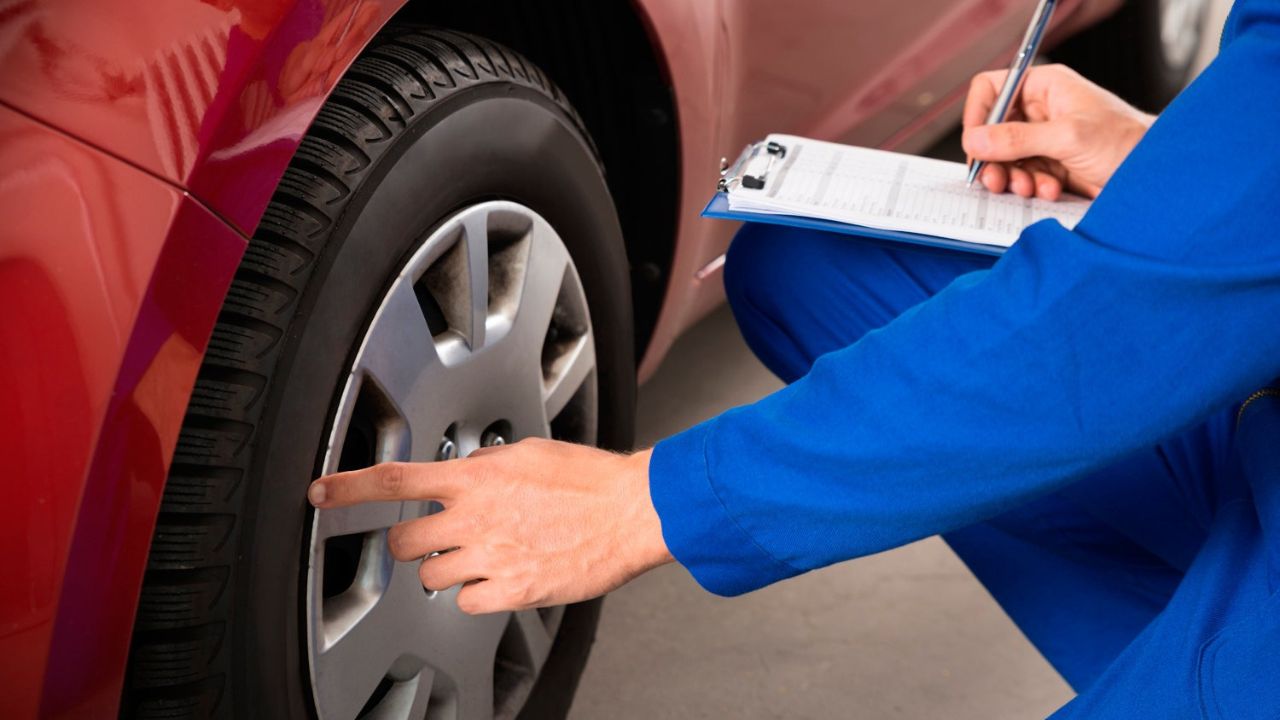Is Damage From A Tire Blowout Covered By Insurance? Tire blowouts can be a nerve-wracking experience for any driver. The sudden loss of control, the sound of rubber tearing, and the fear of an accident can make it a harrowing situation. Besides the immediate safety concerns, drivers often wonder about the financial repercussions of such an event. Will their car insurance cover the damages incurred from a tire blowout? Let’s delve deeper into this common concern.
What Causes Tire Blowouts?
Tyre blowouts can result from a multitude of factors, including overinflation and underinflation, encounters with potholes and road debris, the natural aging process, and wear and tear.
Due to the heightened pressure they endure, overinflated tires are particularly vulnerable to bursting, whereas underinflated tires face the risk of overheating and subsequent failure. Potholes and road debris present another hazard, potentially causing tire punctures that escalate into full-blown blowouts.
Additionally, the advancing age of tires renders them increasingly susceptible to failure, as the accumulated wear and tear compromise their structural integrity over time. Thus, the interplay of these variables underscores the complexity of tire blowouts and the necessity of proactive tire maintenance to mitigate such risks effectively.
Is Damage From A Tire Blowout Covered By Insurance?
Numerous elements can influence whether your insurance provider will extend coverage for damages incurred from a tire blowout. Crucially, the specifics of your policy, including coverage limits and any exclusions, are pivotal in determining the extent of your coverage.
Moreover, the deductible you choose when purchasing your insurance policy significantly influences the portion of expenses you’re required to cover out of pocket before your coverage takes effect.
Equally important is a thorough comprehension of the claims process and a steadfast commitment to following it meticulously, ensuring a smooth and successful claims experience.
Factors Affecting Coverage
Numerous variables come into play to determine whether your insurance will extend coverage for damages stemming from a tire blowout. Critical among these are the specifics outlined in your policy, including coverage limits and exclusions, which exert substantial influence.
Moreover, the deductible selected during policy acquisition directly affects the out-of-pocket expense before coverage takes effect. Equally crucial is a comprehensive grasp of the claims procedure and strict adherence.
These elements collectively shape the trajectory of your insurance coverage, underscoring the importance of meticulous attention to policy details and procedural protocols to navigate potential tire blowout-related claims effectively.
Steps To Take After A Tire Blowout
Following a tire blowout, safety becomes paramount. Immediately steer your vehicle to a secure spot, free from traffic, to evaluate the aftermath. Swiftly contact your insurance company to notify them of the incident and kick-start the claims procedure.
Furnishing precise details and necessary documentation will streamline the claims process, ensuring a more seamless experience. Prompt action and clear communication are key in navigating this challenging situation.
By prioritizing safety and adhering to the correct procedures, you can efficiently address the aftermath of a tire blowout and expedite the resolution of any resulting insurance claims.
Examples Of Covered Damages
Insurance usually covers replacing the damaged tire and addressing any vehicle damage caused by the Blowout. This coverage extends to various aspects, encompassing repairs for body damage, realignment of the wheels, and even the expenses of towing your vehicle to a repair center.
In essence, when a tire blowout occurs, insurance alleviates the financial burden by funding the replacement of the tire and rectifying any damage to your vehicle.
This comprehensive coverage ensures that drivers are not left to bear the full cost of repairs in the aftermath of such an incident, offering peace of mind and financial protection.
Examples Of Uncovered Damages
Insurance policies typically cover damages directly caused by a tire blowout; however, certain expenses may remain uncovered. For instance, regular tire wear and tear costs typically fall outside the purview of insurance coverage.
Additionally, damages stemming from negligence, such as driving on excessively worn tires, often do not qualify for reimbursement under insurance policies. Therefore, policyholders need to understand the limitations of their coverage and take proactive measures to maintain their vehicles properly.
By adhering to recommended maintenance schedules and exercising diligence on the road, drivers can mitigate the risk of encountering situations where insurance may not extend its protective umbrella.
How To Ensure Coverage
Ensure you meticulously review your insurance policy to ascertain coverage for damages from a tire blowout. Take the time to comprehensively understand the scope of coverage, delineating what falls under protection and what does not.
Should you find gaps in coverage or areas of concern, contemplate adding supplementary coverage to fortify your protection. Engaging in open dialogue with your insurance provider is pivotal; it allows you to articulate your apprehensions and specific needs.
Doing so facilitates the customization of your policy to align more closely with your requirements and preferences.
Tips For Preventing Tire Blowouts

Ensuring tire integrity is paramount for safeguarding both safety and financial stability. Consistently maintaining tires through routine checks, such as monitoring tire pressure and scrutinizing for indications of wear, serves as a proactive measure to detect potential problems before they worsen.
Furthermore, exercising caution on the road and steering clear of hazardous driving conditions are pivotal in diminishing the likelihood of tire blowouts.
By adhering to these practices, individuals mitigate the risk of accidents and safeguard themselves against unexpected financial burdens associated with tire damage.
Tire Blowout Accident Causes
Tire blowouts represent abrupt and dangerous events on the roadway, frequently resulting in drivers losing control of their vehicles and, in more severe instances, precipitating accidents.
It is paramount for drivers to grasp the underlying causes of tire blowouts to proactively manage risks and safeguard their well-being while navigating the roads.
By comprehending these factors, motorists can take preemptive measures to maintain their tyres properly, such as regular inspection for signs of wear and tear, ensuring optimal tire pressure, and steering clear of road hazards. Ultimately, this knowledge empowers drivers to foster a safer driving environment for themselves and others sharing the roadways.
How Dangerous Are Tire Blowouts?
Tire blowouts present substantial hazards to both drivers and passengers. The abrupt decrease in tyre pressure can precipitate a loss of command over the vehicle, culminating in collisions, bodily harm, and potentially tragic outcomes.
The magnitude of a tire blowout’s impact is primarily contingent upon various factors, such as the vehicle’s velocity, the state of the road surface, and the driver’s responsiveness.
In essence, the ramifications of such an event extend far beyond mere inconvenience, underscoring the critical importance of vigilance and proactive maintenance measures to mitigate the risk of such occurrences.
What To Do On The Road If My Tires Blowout?
Encountering a tire blowout while driving can be a terrifying experience, but knowing how to react can help minimize the risks. Here are some essential steps to take:
Keep The Steering Wheel Steady.
Maintain a firm grip on the steering wheel to keep the vehicle moving in a straight line and prevent veering into other lanes or obstacles.
2Do Not Slam The Brakes.
Avoid sudden braking, as it can further destabilize the vehicle and increase the risk of losing control. Instead, gradually release the accelerator and let the vehicle slow down naturally.
3Slow Down With The Gearbox And Natural Deceleration.
Shift to a lower gear to help slow down the vehicle gradually. Use engine braking combined with natural deceleration to bring the vehicle to a safe stop.
Turn On The Emergency Lights and Change The Wheel.
Once you’ve safely pulled over to the side of the road, activate your hazard lights to alert other drivers of your presence. Replace the damaged tire with a spare or call for roadside assistance if possible.
What Could Lead To A Tire Blowout?
Several factors can contribute to Tire blowouts, including:
- Overinflation and underinflation: Incorrect tire pressure can weaken the tire structure and increase the risk of blowouts.
- Potholes and road debris: Sharp objects on the road, such as rocks, nails, or glass, can puncture tires, leading to blowouts.
- Age and wear: As tires age, the rubber degrades, making them more prone to failure. Additionally, worn-out treads reduce traction and increase the risk of blowouts.
Tips To Avoid Tire Blowouts
Preventing tire blowouts requires proactive maintenance and careful driving habits. Here are some tips to help avoid tire blowouts:
Be Sure To Pick The Right Tyres.
Choose tires that are appropriate for your vehicle and driving conditions. Consider tread pattern, size, and load rating to ensure optimal performance and safety.
Regularly Check The Depth Of The Tire Design And Change It When Worn.
Inspect your tires regularly for wear and tear, including tread depth, cracks, and bulges. Replace worn-out tires promptly to minimize the risk of blowouts.
Check The Pressure Every Month.
Maintain proper tire pressure by checking it at least once a month and adjusting it as needed. Refer to your vehicle owner’s manual or the tire manufacturer’s recommendations for the correct pressure levels.
Is Damage From A Tire Blowout Covered By Insurance?
Whether damage from a tire blowout is covered by insurance depends on the type of coverage you have. Comprehensive insurance typically covers damages from unexpected events like tire blowouts, while collision insurance may also cover vehicle damage. However, it’s essential to review your policy details and consult with your insurance provider to understand the extent of your coverage.
How To Avoid Being At Fault For A Tire Blowout Accident?
While tire blowouts can occur due to various factors beyond the driver’s control, there are steps you can take to minimize the likelihood of being at fault for an accident:
- Proper tire maintenance: Regularly inspect and maintain your tires to ensure they are in good condition and properly inflated.
- Safe driving practices: Avoid aggressive driving behaviors, such as speeding and abrupt maneuvers, which can increase the risk of tire blowouts and accidents.
- Avoid hazardous road conditions: Be mindful of road hazards such as potholes, debris, and uneven surfaces, and take appropriate precautions to avoid them.
Manufacturer, Retailer, and Installer Liability
Tire blowouts may sometimes result from manufacturing defects, improper installation, or faulty repairs. In such instances, manufacturers, retailers, or installers may be liable for tire blowouts’ damages. Documenting the circumstances surrounding the tire blowout and seeking legal guidance to determine liability is essential.
Injured In a Tire Blowout Accident?

If you or a loved one has been injured in a tire blowout accident, it’s crucial to seek medical attention immediately and document the incident. Contacting a qualified attorney specializing in personal injury cases can help you understand your rights and pursue compensation for your injuries, medical expenses, and other damages.
In conclusion, tire blowouts are serious safety hazards that can lead to accidents, injuries, and even fatalities. By understanding the causes of tire blowouts, practicing safe driving habits, and maintaining proper tire maintenance, drivers can reduce the risk of encountering this dangerous situation on the road.
Conclusion
Damages from a tire blowout may be covered by your car insurance, depending on your policy details and the circumstances of the incident. Understanding your coverage and taking proactive steps to prevent tire blowouts can help mitigate risks and ensure peace of mind on the road.
FAQ
Does Insurance Cover Damages If The Tire Blowout Causes An Accident?
If you have comprehensive or collision coverage, damages resulting from a tyre blowout causing an accident should be covered.
Will My Insurance Rates Increase If I Claim Damages From A Tire Blowout?
It depends on your insurance provider and policy. Claiming damages may increase your rates, but this can vary depending on various factors.
Can I Use Any Repair Shop For Damages Resulting From A Tire Blowout, Or Does My Insurance Require Specific Providers?
Most insurance policies allow you to choose your preferred repair shop, but you must check with your provider to ensure coverage.
What Should I Do If My Insurance Denies Coverage for Damages From A Tire Blowout?
If your insurance denies coverage, review your policy details and consider appealing the decision or seeking assistance from a legal expert specializing in insurance matters.
Are There Any Specific Exclusions Related To Tire Blowouts In Insurance Policies?
Is Damage From A Tire Blowout Covered By Insurance? Some insurance policies may have exclusions related to tire blowouts, such as coverage limitations for off-road driving or racing activities. Reviewing your policy thoroughly can help you understand any such exclusions.



